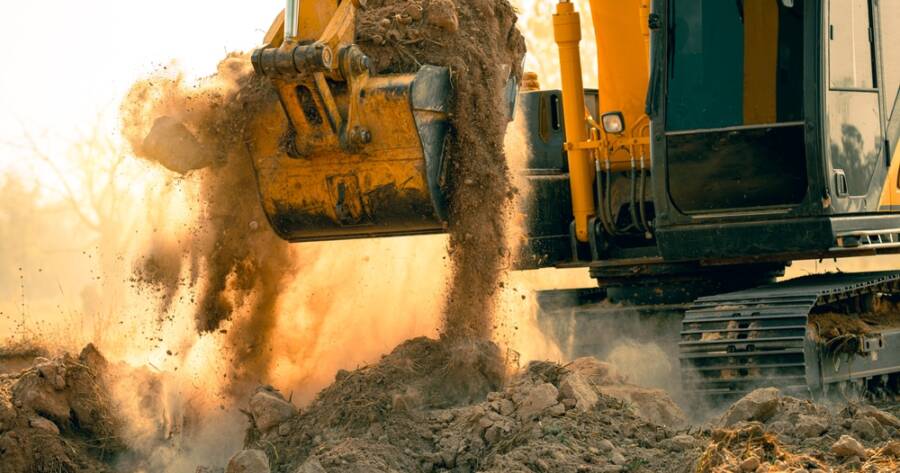Excavator jobs are among the most accessible roles in the construction industry. Even without prior experience, many companies are eager to train new workers. Learning how to operate an excavator opens doors to stable employment and a variety of work environments, from building sites to mining. Now, let’s explore entry-level roles and the average salary for excavator operators.
Understanding Excavator Jobs and Entry-Level Requirements
Excavator operators use heavy machinery to dig, move, and load materials on construction sites. While these roles can be demanding, they’re also rewarding. Entry-level excavator jobs typically don’t require formal education; instead, they focus on practical skills. For those with little experience, employers often offer on-the-job training, allowing new hires to build their skills while earning a wage.
If you’re interested in starting an excavator job, consider looking for employers who provide training. Some construction companies, especially larger ones, invest in training programs for new workers. They’ll often start beginners as “spotters,” assisting operators and learning the ropes before handling the equipment. This approach helps new hires gain hands-on experience and develop safety awareness, both essential skills for operating heavy machinery.
Key Entry-Level Roles in Excavation
Excavator Operator Trainee
As an entry-level position, an excavator operator trainee role is designed for those without prior experience. In this role, trainees start with smaller tasks and gradually learn to operate the machinery. Responsibilities may include basic digging, moving debris, and minor site preparation. During this time, trainees receive supervision and guidance from experienced operators. Many companies that hire trainees look for individuals who are reliable, safety-conscious, and willing to learn.
Construction Site Assistant
This role is another pathway into excavation. As a construction site assistant, duties can vary from helping load equipment to preparing the site for excavation work. This role exposes beginners to the general workings of a construction site, helping them get comfortable with the environment and safety protocols. Site assistants often work closely with excavator operators, allowing them to observe and understand machine operation, which can be valuable when transitioning into an operator role.
Laborer with Excavator Operation Training
Some construction companies hire laborers and then provide them with the option to train on specific machinery, including excavators. This dual role allows workers to learn while assisting with various tasks on site. For instance, laborers might help clear debris, carry materials, or set up equipment, all while being exposed to the fundamentals of excavator operation. This approach allows employees to progress within the company and potentially specialize as an excavator operator.
Spotter for Excavator Operators
Spotters are essential on construction sites to guide excavator operators, ensuring that the area is clear of obstacles. In addition, spotters communicate with the operator to prevent accidents and ensure precision in machine movement. Spotting offers new workers hands-on experience in an excavator environment without directly operating the machinery. This role builds a strong foundation, making it easier to move up to operating roles in the future.
Average Salary for Entry-Level Excavator Jobs
Starting salaries for entry-level excavator positions vary depending on location and employer size. On average, however, beginner roles pay a generous hourly wage, which equals a nice middle-class earning for full-time work. Salaries may be slightly lower in rural areas and higher in cities with more demand.
As new hires gain skills and experience, there’s potential for significant pay increases. Skilled excavator operators can earn a respectable hourly pay. With training, some operators even specialize in particular excavation work, such as road construction or mining, which can lead to higher salaries and additional benefits.
Steps to Getting Started in Excavation Work
Research Training Programs and Employers
Many construction companies and vocational schools offer introductory programs to prepare individuals for excavator jobs. Studying these options can help beginners find employers who are open to hiring without prior experience.
Apply for On-the-Job Training Opportunities
Look for companies that offer on-the-job training. These employers are often willing to invest in new hires who are committed to learning. They’ll help with safety training, machinery operation, and basic excavation tasks.
Start in a Supportive Role
Support roles, such as site assistants or spotters, are ideal entry points for people new to the field. These roles help workers understand the responsibilities and challenges of excavation before taking on full operator roles.
Get a Commercial Driver’s License (CDL)
Some excavator roles require a CDL, particularly if the job involves transporting machinery between sites. Having a CDL can make applicants more competitive and open up additional job opportunities.
Excavator Jobs Provide a Strong Start in Construction
Getting into excavator jobs without experience is achievable, especially for those willing to learn and adapt. The construction industry offers many entry-level roles that allow new workers to gain skills and advance within the field.
From spotters to operator trainees, each role builds a strong foundation for a future in excavation. With competitive wages and opportunities for growth, excavator jobs offer a promising path to a stable and rewarding career.
